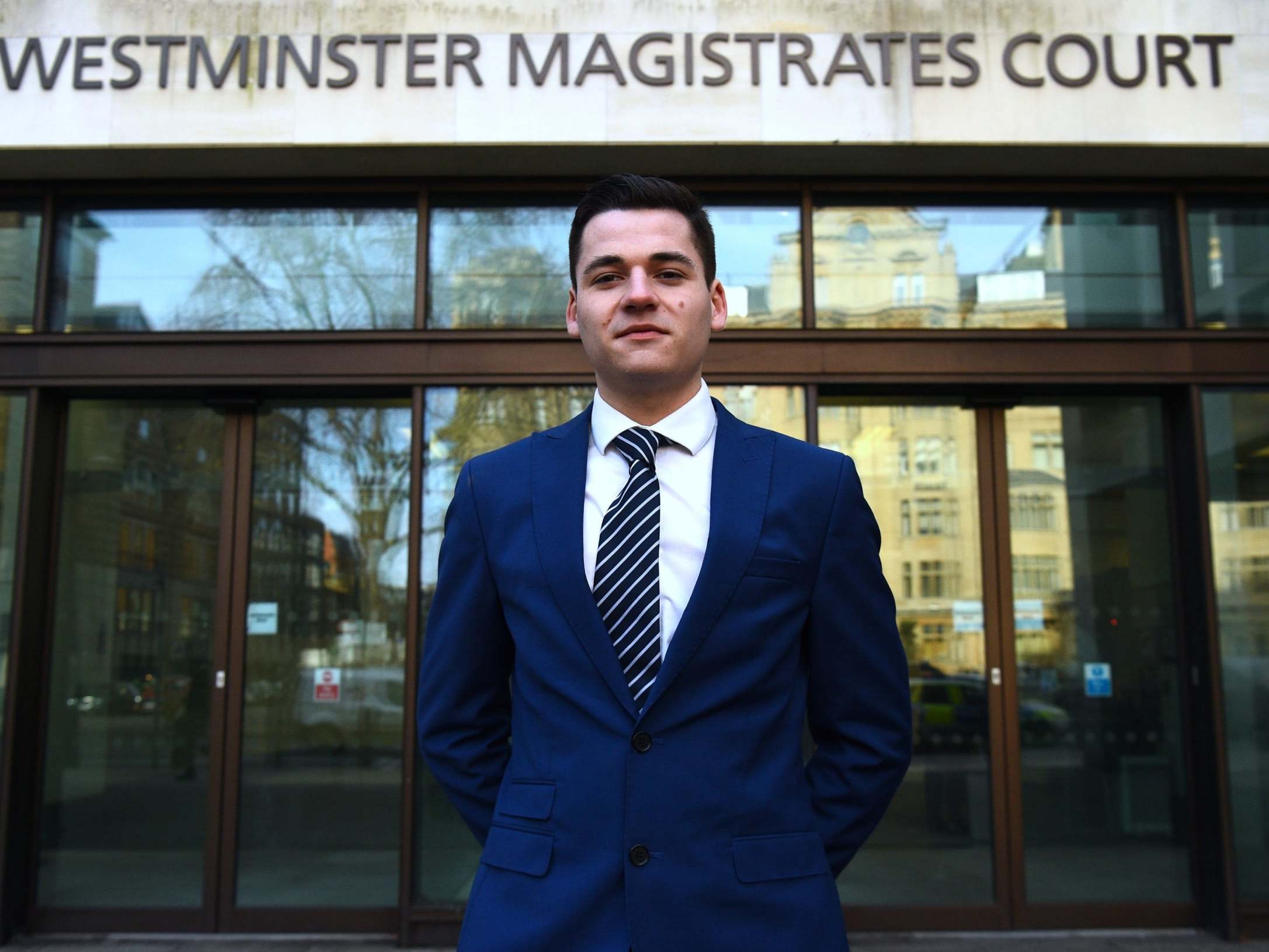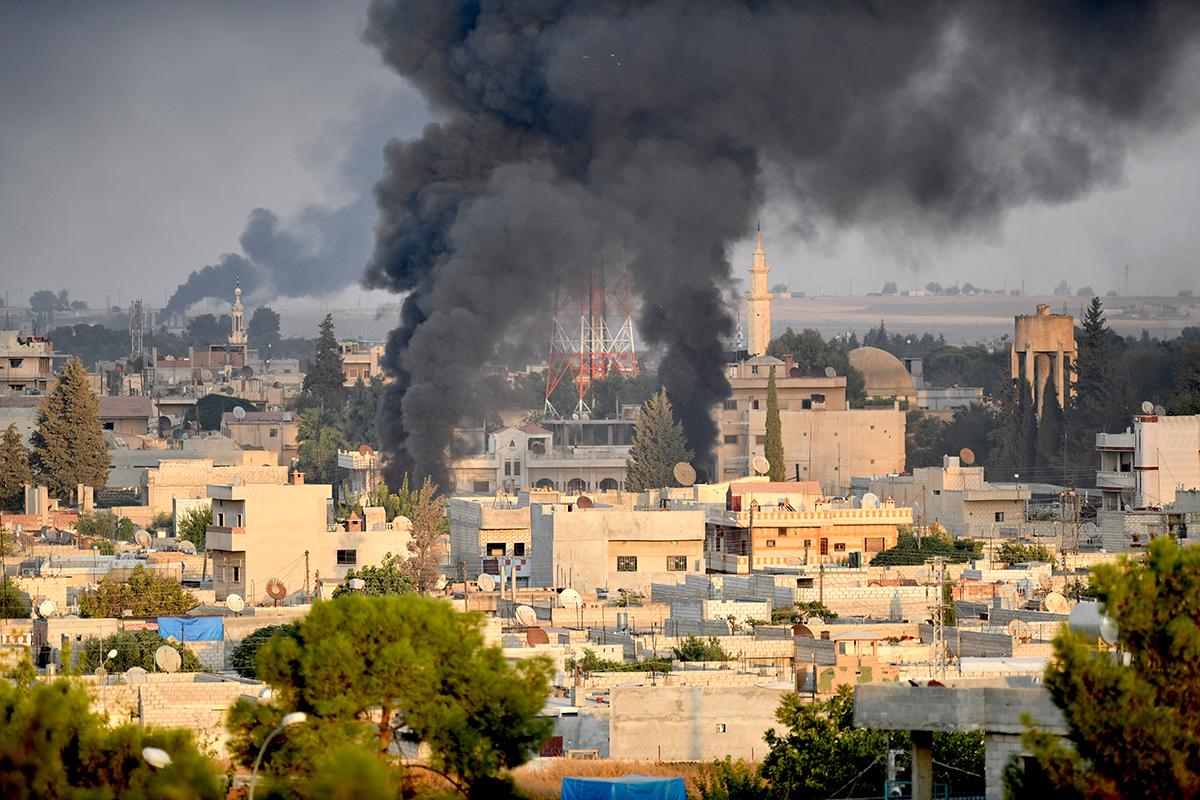Prosecutors refuse to explain why they dropped terror charges against Kurdish YPG supporters
One defendant believes the about-face was made to avoid revealing diplomatic communications with Turkey

Prosecutors have refused to explain why they dropped terror charges against three men accused of supporting Kurdish fighters in Syria, amid allegations of diplomatic pressure from Turkey.
Ex-paratrooper Daniel Burke originally fought against Isis with the People’s Protection Units (YPG) between late 2017 and June 2018.
No action was taken at the time, but he was prosecuted for “preparing acts of terrorism” after allegedly attempting to return to support the YPG against an invasion by Turkish-led forces last year.
Paul and Sam Newey – the father and brother of YPG fighter Daniel Newey – were charged with terror offences for sending him money and “assisting” him in December.
A trial was due to start in October but all charges against the three men were dropped by the Crown Prosecution Service (CPS) last week.
“It is the responsibility of the prosecution to review matters continuously and as the case has developed, the prosecution has concluded that there is now insufficient evidence to sustain a reasonable prospect of conviction,” prosecutor Simon Davis told the Old Bailey.
Defence lawyers demanded a further explanation, but none was given when a judge summoned all parties back to court on Friday.
Mr Burke’s legal team said he believed the change was directly linked to their application for the prosecution to disclose “information relating to diplomatic pressure placed on the UK government by Turkey to treat the Kurdish YPG as ‘terrorists’”.
A statement said threats about future trade links, and the “unwillingness of the authorities to risk the embarrassment” of revealing communications may have played a part in the CPS’ decision.
The YPG is not banned in the UK and was backed by the US-led coalition to drive Isis out of northern Syria.
Several former volunteers have suggested that political pressure from Turkey, which considers the YPG a terrorist group, could be driving prosecutions.
But the CPS and police have insisted they are acting independently according to the law, and the government has repeatedly said anyone returning from Syria would be investigated.
When questioned at Friday’s hearing, Mr Davis said he could not add anything to the previous “succinct and blunt” response by the CPS, adding: “This is all that is going to be said.”
Mr Justice Sweeney said the decision came after defence lawyers lodged an abuse of process argument and called for all charges to be dismissed.
“Rather than opposing the applications, the prosecution instead elected to offer no evidence against these three defendants,” he added.
“The prosecution declined to go further by way of explanation than stating that until 29 June, they had proceeded on basis that there was a reasonable prospect of conviction for all three defendants, but on 29 June it concluded after a disclosure exercise on the abuse of process application that there was no such prospect.”
Justice Sweeney said prosecutors had rejected all defence proposals on how they could be compelled to provide more information.
“The prosecution submit that none of those bases provide a court with any power to require them to say more than they already have, which is that they have complied with the code for crown prosecutors at all stages and the circumstances have changed,” the judge added.
“There is no basis upon which I can require the prosecution to say more by way of explanation for their decision to offer no evidence.”
Andrew Hall QC, representing Mr Burke, told the court that even if there was no legal power, the prosecution “really ought to do the right thing”.
He said the former British Army soldier, from Wythenshawe, had been kept in prison on remand for seven months and had his custody recently extended despite the coronavirus outbreak.
Writing on Facebook after the hearing, Mr Burke accused the CPS of wasting public money, adding: “They f**ked all my s**t up and got away with it scot free. No reason, no compensation, no law to stop them from doing it again.”
Mr Burke is now considering suing authorities over his treatment, and his lawyers said the case showed the need to review the definition of terrorism in British law.
“Its use in recent cases to prosecute British volunteers fighting against the genocidal activities of proscribed terrorist groups in Syria arguably goes far beyond the intention of Parliament in passing the legislation, and potentially brings the law into disrepute,” a spokesperson added.
Paul Newey, 49, was accused of funding terrorism by sending £150 to his son, while his 19-year-old son was accused of assisting his brother.
Daniel Newey travelled to Syria in 2017 and again in 2019, and although his father made several financial transfers during that time he was only charged over the £150 sum.

Richard Thomas, representing Paul Newey, said he had been “vilified as a terrorist here and abroad”, and that the case had had a “catastrophic effect on his personal and professional life”.
“It’s not the first time it has happened and the court and the public may be calling for an explanation,” he added. “Plainly, members of the public need to know what is and what is not criminal.”
It was the latest in a string of failed or abandoned terror prosecutions of people who fought with the YPG, amid persistent questions over how supporting a group that was backed by the British government against Isis could be terrorism.
Eight British volunteers – seven men and one woman – were killed in action and the UK government has repeatedly praised the YPG’s “important contribution to counter-Daesh efforts”.
The CPS declined to comment on the allegations made over diplomatic pressure from Turkey.
A spokesperson said: “The CPS’s function is not to decide whether a person is guilty but to make fair and independent decisions.
“These are made on a case by case basis in line with our legal test. Cases are then kept under continuous review.
“As part of that responsibility, we have concluded our legal test for a prosecution is no longer met.”
